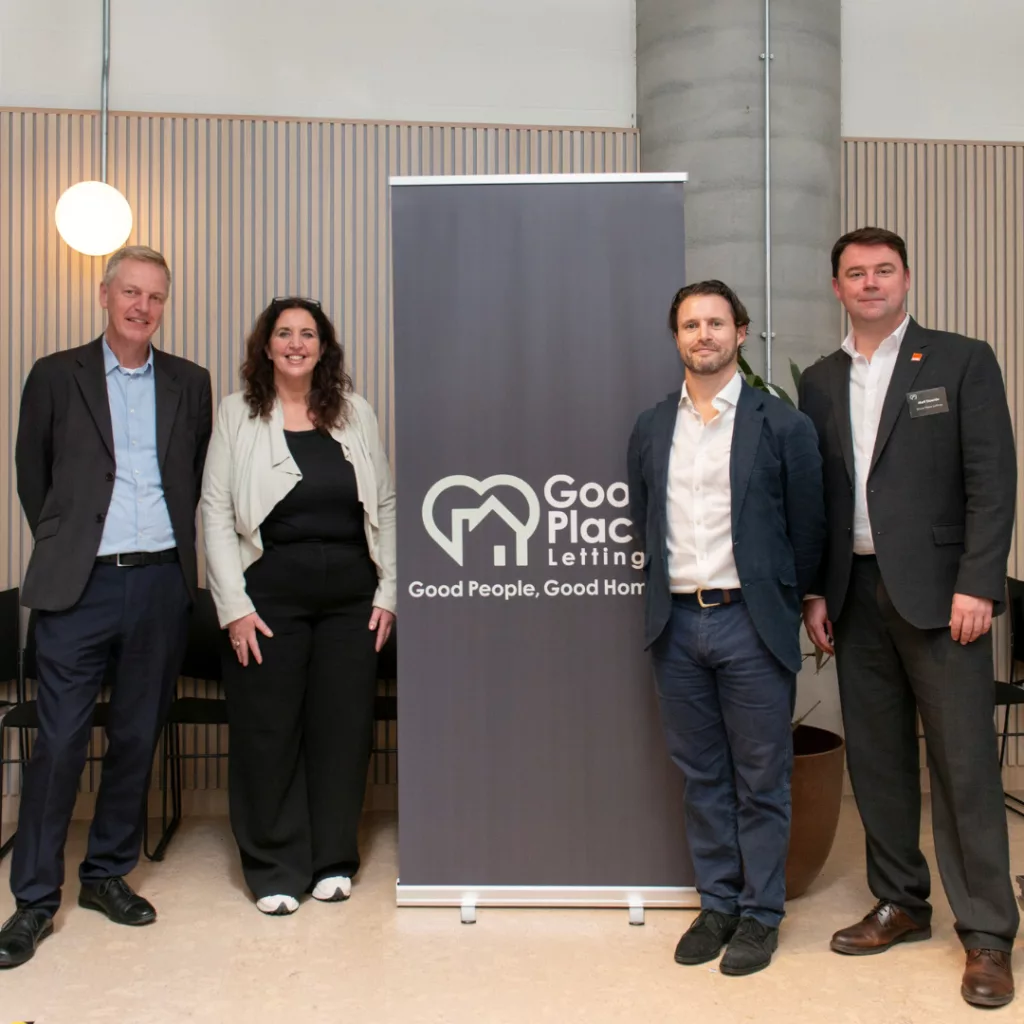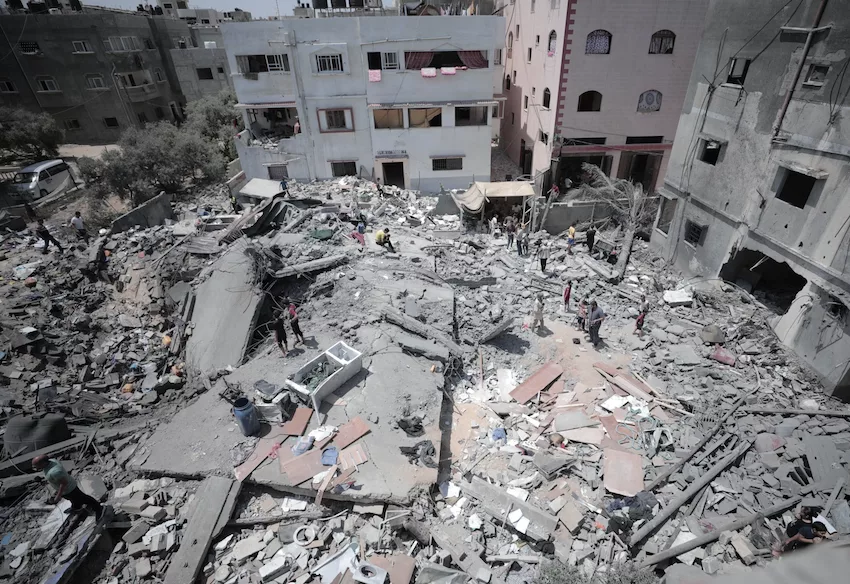We owe it to the communities who are living on the frontline of the climate emergency – particularly those living close to mountainous areas where the climate is changing faster and ecosystems are the most fragile – to invest in and adapt solutions which are already helping countless people to survive.
This was the headline message from Louise Winterburn at the World Habitat COP26 event – held on Monday 8 November – celebrating the life-saving work of the Aga Khan Agency for Habitat (AKAH) in Pakistan.
AKAH use the latest technology alongside indigenous knowledge to work with local communities in the mountainous regions of Northern Pakistan, to help them adapt to the rapidly changing climate and the frequent disasters it causes. They were presented with a Gold World Habitat Award for this work in 2020.
Louise Winterburn, Deputy CEO of World Habitat and Chair of the event, said:
“It is essential that the focus and outcomes of COP26 are about actionable solutions. Especially for the mountain communities, who are on the frontline of the climate emergency and who feel its effects first and fiercest. We can see that by combining the very latest technology with the knowledge of indigenous communities, habitats can be safeguarded, lives can be saved and people can remain in their homes in safety and security.”
Speaking at the event, Maimunah Mohd Sharif, Executive Director of UN-Habitat, was full of praise for the approach AKAH have taken in Pakistan, particularly for the way they work with local communities.
She said:
“The work of the Aga Khan Agency for Habitat not only empowers communities – but integrates them and enhances the power of local knowledge. Coupling that with data helps them to understand and manage risk for a better future – the higher the diversity of adaptation approaches in our toolbox, increases our chances of finding responses that fit a particular situation.”
She believes that the climate emergency is a poverty multiplier and the solution requires us working together to provide a ‘pro-poor approach’ with people at the centre of our thoughts and our actions, particularly those living in the most vulnerable areas – as AKAH have done.
“Reducing inequalities is a cornerstone to ensure we are better placed for future shocks and crises. Adapting to climate change presents a major societal challenge – it is a poverty-multiplier and will trap the poor without a pro-poor approach to planning, building and managing cities and settlements.”
Khalid Khurshid, the Chief Minister of Government of Gilgit Baltistan in Pakistan – one of the areas most affected by the climate crisis – called for an international forum to protect mountain communities. He highlighted how these communities suffer the worst consequences of the climate emergency but emit almost zero greenhouse gases.
Since 2010 there have been around 400 deaths and 250 injured because of disasters triggered by global warming.
He added:
“The…area…is very fragile and 70 per cent of water in the world comes from the mountains – right now, we are facing huge migration and if it continues, I fear we will lose half the population in a decade. We need to stop the migration to preserve bio-diversity, wildlife. To preserve the whole nature – we need to invest in the environment.”
His call for an international forum for mountain communities is based on how vital this part of the world is for the whole of humanity, but also, those causing the disasters are not the ones who are facing them on a daily basis.
“What I suggest…is to create an international forum for mountain communities, so we will be contributing and they will be able to [continue to] live in these mountains. We need to not only invest – we also need to launch projects that will give them openings to export and get something in return to be able to live there.”
Onno Ruhl, Executive Director of the Aga Khan Agency for Habitat, reflected on how their work began with explaining to communities that just because there were hazards it didn’t mean they had to accept that someone would die as a consequence – but they would have to mobilise the local communities.
“In 2010 there was a…disaster that was a sea-change and we realised the risks were getting so bad we needed to do more. It was at that point we decided to bring science – to complement community engagement – to better understand the risks, and plan and combine the science with indigenous knowledge.”
And because their interventions have been working, he believes that we cannot give up on certain challenging habitats and it is much better for communities to remain, safely, where they currently are.
“In the areas where we work, the mortality rates from avalanche incidents have been cut to one-tenth of what it was before. Let’s work together and use the skills…to think about how we plan for a better future – because Gilgit Baltistan is not the only area of the world where people have already died due to climate change.”
He was also clear that adaptation plays as significant a role as mitigation does.
“I am not against funds for mitigation as its very important we stay below 1.5 degrees but even if we magically solve that problem, we need to save these people on the frontlines.”
Agreeing with Onno Ruhl, the Minister Khalid Khurshid added how this is vital for the whole of the world. Re-emphasising his point on how over two-thirds (70%) of the world’s water supply comes from the mountains, he illustrated the drastic reduction in snowfall – if a decade ago the mountains in Gilgit Baltistan had ten feet of snow per year, now they are only experiencing one or two feet of snow.
“That’s a reduction of drinking water or agriculture water – irrigation water – for the country or the rest of humanity. This mountain community…and its eco-system is not only important for the people living there. It is equally important for the whole of the world.
“We have to facilitate the mountain communities…these are the people who are living in that [eco] system who can…protect [it].”
Reflecting on the discussion and looking ahead Louise Winterburn said:
“It is these communities who are the least responsible for the climate crisis but who experience the majority of its most devastating impacts. We owe it to them to bring people together and put into action the solutions, knowledge and expertise that we know already exist – as AKAH have illustrated. We must create the scale of adaption and adoption required to protect and save these most environmentally-vulnerable communities.”
A recording of the full discussion at our COP26 event is available here
The video ‘Rekindling Hope’, on the impact of AKAH’s work on local communities is available here.
Image: Gaelle Beri




